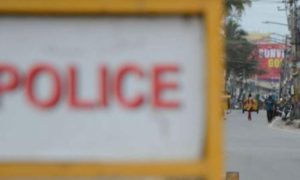Post-Diwali, New Delhi, Kolkata, and Mumbai face severe pollution. Air quality index reaches hazardous levels. Urgent measures needed for cleaner air
Two Indian cities, along with New Delhi, ranked among the world’s top 10 most polluted on Monday, a day after Diwali celebrations throughout the country. India’s national capital, claimed the top spot with an air quality index (AQI) of 420, categorised as ‘hazardous’ by Swiss group IQAir.
Kolkata secured fourth place with an AQI of 196, and Mumbai, the financial capital, stood at the eighth spot with an AQI of 163. The post-Diwali pollution, exacerbated by firecracker use, raises concerns about air quality and public health. An AQI level of 400-500 impacts healthy people and is dangerous to those with existing diseases, while a level of 150-200 brings discomfort to people with asthma, lung and heart problems. Levels of 0-50 are considered good.
Read More: Delhi Pollution: Air quality improves further, but still in ‘poor’ category
ALARMING POST-DIWALI POLLUTION
A thick layer of smog had begun to circulate in New Delhi from Sunday night, sending its AQI to an alarming 680 a little after midnight. Every year authorities impose bans on firecrackers in the capital, but only rarely do those bans appear to be enforced. Air quality in India deteriorates every year ahead of winter when cold air traps pollutants from vehicles, industry, construction dust and agricultural waste burning.
Read More: Ayodhya Deepotsav Sets World Record by Lighting Over 22L Diyas; Yogi Hails Ascension of ‘Ram Lalla’
New Delhi’s authorities postponed an earlier decision to restrict use of vehicles after a brief spell of rain on Friday brought some respite from a week-long exposure to toxic air. Addressing the press on Monday after the pollution review meeting, Delhi Environment Minister Gopal Rai said that the pollution levels are not just for today. He added that in the coming few days, windspeed is likely decrease, which means that pollution level is likely to increase. “Until the next batch of orders from CAQM, all restrictions of GRAP-4 will continue,” Rai said.
A day after Diwali festivities, the states of Haryana, Punjab reported ‘poor’ and ‘very poor’ air quality on Monday. The average air quality recorded in both states was in the ‘satisfactory’ or the ‘moderate’ category at 4 pm on Sunday, but it showed signs of deterioration on Monday.
(With agency inputs)





































